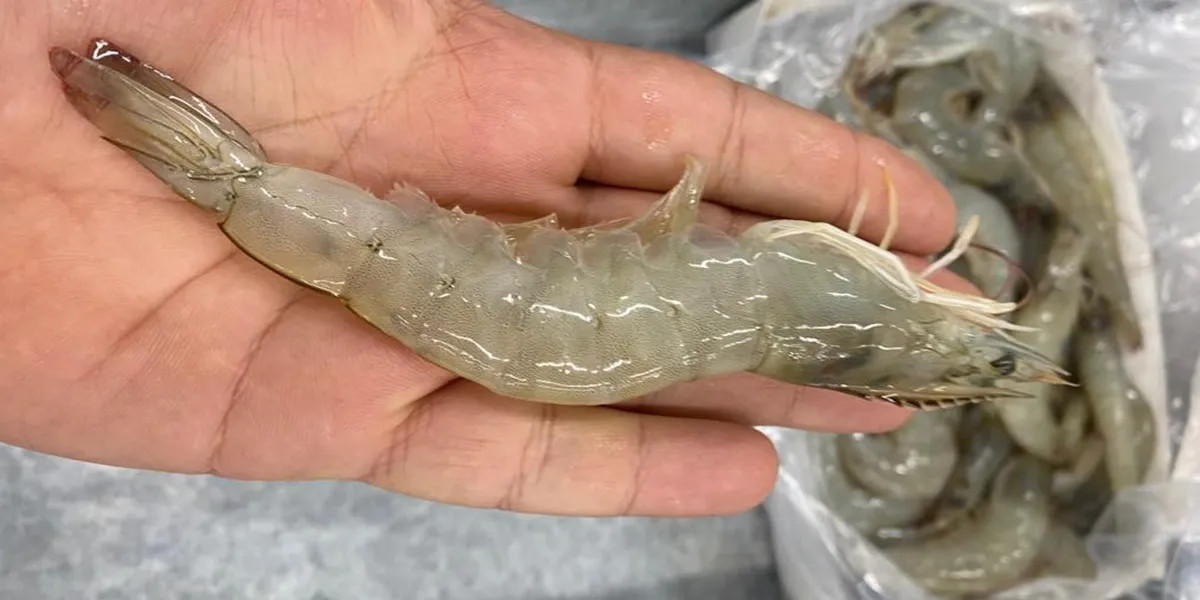Shrimp isn’t just a delicious addition to your plate—it’s a nutritional powerhouse. Packed with lean protein, essential vitamins, and minerals, shrimp offers a wide range of health benefits that make it a smart choice for anyone looking to eat well. From supporting heart health to boosting brain function, the health benefits of shrimp are backed by science and appreciated by nutritionists worldwide.
Unlike many other protein sources, shrimp is low in calories and saturated fat, yet rich in nutrients like iodine, selenium, and vitamin B12. It also contains astaxanthin, a potent antioxidant that may help reduce inflammation and protect against chronic disease. Whether you’re managing your weight, improving your immune system, or simply seeking a clean source of protein, shrimp delivers.
In this article, we’ll explore the most important health benefits of shrimp, how it compares to other seafood, and how to enjoy it safely and deliciously. Keep reading to discover why shrimp deserves a regular spot in your diet.
Nutritional Profile of Shrimp: What’s Inside Every Bite
Shrimp is a compact source of nutrition, offering a powerful blend of macronutrients and essential minerals in every bite. A 100g serving of cooked shrimp contains approximately 106 calories, 20g of protein, and less than 2g of fat, making it ideal for lean diets.
What sets shrimp apart is its micronutrient density. It’s rich in:
- Iodine – crucial for thyroid function
- Selenium – supports immune health
- Vitamin B12 – aids in nerve and brain function
- Zinc – essential for cellular metabolism
- Astaxanthin – a potent antioxidant
| Nutrient | Amount per 100g | Benefit |
| Protein | 20g | Muscle repair, satiety |
| Iodine | 35µg | Thyroid hormone production |
| Selenium | 48µg | Antioxidant, immune support |
| Vitamin B12 | 1.1µg | Brain and nerve health |
| Omega-3 (EPA/DHA) | ~0.3g | Heart and brain protection |
Shrimp’s nutritional profile makes it a valuable ingredient for health-conscious consumers and food producers alike. Companies like Pishva Holding have recognized this potential, offering high-quality shrimp products that meet global standards.
The health benefits of shrimp go beyond basic nutrition—it’s a functional food that supports multiple body systems. Whether grilled, steamed, or sautéed, shrimp is a smart addition to any balanced diet.
Cardiovascular Health: Is Cholesterol in Shrimp a Concern?
Shrimp has long been misunderstood due to its cholesterol content. A 100g serving contains around 189mg of cholesterol, which raised concerns in the past. However, modern research shows that dietary cholesterol has a minimal effect on blood cholesterol for most people.
In fact, shrimp may improve heart health by:
- Raising HDL (good cholesterol)
- Lowering triglycerides
- Providing omega-3 fatty acids
- Reducing inflammation via astaxanthin
| Component | Effect on Heart Health |
| HDL Cholesterol | Helps remove LDL from bloodstream |
| Omega-3s | Reduce blood pressure and clotting |
| Astaxanthin | Antioxidant, anti-inflammatory |
Shrimp is also low in saturated fat, which is more directly linked to elevated LDL levels. When consumed in moderation and prepared healthfully (e.g., grilled or steamed), shrimp can be part of a heart-friendly diet.
For those sourcing shrimp in bulk, working with a trusted Iranian Shrimp Supplier & Wholesale ensures access to clean, responsibly farmed seafood. The health benefits of shrimp are best realized when quality and sustainability go hand in hand.
Brain and Thyroid Support: The Power of Iodine and B12
Shrimp is one of the few natural foods that delivers a meaningful dose of iodine, a mineral essential for thyroid hormone production. These hormones regulate metabolism, energy levels, and even mood.
In addition, shrimp provides vitamin B12, which supports:
- Cognitive function
- Nerve health
- Red blood cell formation
| Nutrient | Function | Found in Shrimp |
| Iodine | Regulates thyroid hormones | ✅ Yes |
| Vitamin B12 | Supports brain and nerve function | ✅ Yes |
The health benefits of shrimp extend to neurological health, especially in aging populations. Deficiencies in iodine or B12 can lead to fatigue, memory issues, and thyroid dysfunction. Including shrimp in your diet is a simple way to prevent these risks.
When preparing shrimp for long-term use, proper storing and freezing shrimp techniques help preserve its nutrient integrity. Freezing at -18°C and vacuum sealing are recommended to retain iodine and B12 levels. Shrimp isn’t just tasty—it’s a brain-boosting, metabolism-supporting superfood.
Immune System Boost: Selenium and Zinc in Shrimp
Shrimp is a natural source of selenium and zinc, two minerals that play a vital role in immune function. Selenium acts as an antioxidant, helping to neutralize free radicals and support DNA repair. Zinc, meanwhile, is essential for:
- Wound healing
- Cell division
- Immune cell activation
| Mineral | Role in Immunity | Shrimp Content |
| Selenium | Antioxidant, DNA protection | ~48µg/100g |
| Zinc | Immune cell function, healing | ~1.3mg/100g |
The health benefits of shrimp include enhanced resistance to infections and improved recovery from illness. Studies on white-leg shrimp diets enriched with selenium and zinc show improved growth and immune markers—a promising sign for human nutrition as well.
Whether you’re recovering from illness or simply boosting your defenses, shrimp offers a clean, bioavailable source of these critical nutrients. It’s a small seafood with a big impact on your immune resilience.
Antioxidants in Shrimp: What Is Astaxanthin and Why It Matters
Astaxanthin is a powerful antioxidant found naturally in shrimp, responsible for its reddish-pink color. This carotenoid is produced by microalgae and accumulates in shrimp through their diet. What makes astaxanthin unique is its ability to cross the blood-brain and blood-retina barriers, offering protection to both the brain and eyes.
Health benefits of shrimp are amplified by astaxanthin’s anti-inflammatory and anti-aging properties. Studies suggest it may:
- Improve skin elasticity and reduce wrinkles
- Support cardiovascular health
- Enhance endurance and muscle recovery
- Protect against oxidative stress in brain cells
| Benefit | Mechanism |
| Skin health | Reduces UV-induced damage |
| Heart protection | Lowers oxidative stress markers |
| Brain support | Shields neurons from free radicals |
Including shrimp in your diet is a practical way to access astaxanthin without supplements. For those seeking natural sources of antioxidants, shrimp offers a delicious and functional option. The health benefits of shrimp go beyond basic nutrition—astaxanthin makes it a true superfood.

Farmed vs. Wild Shrimp: Nutritional Differences and Safety Concerns
Choosing between farmed and wild shrimp isn’t just about taste—it’s about health and safety. Wild shrimp typically have higher levels of minerals like iodine and selenium, while farmed shrimp may vary depending on feed quality and farming practices.
Key differences include:
- Wild shrimp: Lower risk of antibiotic residues, richer in micronutrients
- Farmed shrimp: May contain additives or contaminants if not certified
| Type | Nutritional Quality | Safety Concerns |
| Wild Shrimp | Higher mineral content | Minimal contamination risk |
| Farmed Shrimp | Variable nutrition | Possible antibiotic residues |
To enjoy the full health benefits of shrimp, sourcing matters. Look for certifications like ASC or Best Aquaculture Practices (BAP) to ensure safety. Responsible producers like those in the Iranian Shrimp Supplier & Wholesale sector are improving transparency and quality in farmed shrimp.
Ultimately, both types can be healthy—if sourced wisely.
Who Should Be Cautious: Allergies and Dietary Restrictions
While shrimp offers many health benefits, it’s also one of the most common food allergens. People with shellfish allergies—especially to crustaceans—should avoid shrimp entirely.
Symptoms may include:
- Hives or skin rash
- Swelling of lips or throat
- Difficulty breathing
- Anaphylaxis in severe cases
| Risk Group | Recommendation |
| Shellfish allergy | Avoid shrimp completely |
| High uric acid levels | Limit intake due to purines |
| Pregnant individuals | Choose low-mercury sources |
Cross-contamination is a serious concern, especially in restaurants. Always read labels and ask about preparation methods. Despite the many health benefits of shrimp, safety comes first. If you’re unsure, consult a healthcare provider before adding shrimp to your diet.
How to Cook Shrimp for Maximum Health Benefits
Cooking methods can make or break the nutritional value of shrimp. To preserve its protein, omega-3s, and antioxidants, avoid deep frying or heavy sauces. Instead, opt for:
- Grilling with olive oil and herbs
- Steaming with lemon and garlic
- Sautéing in light broth or coconut oil
| Method | Nutrient Retention | Health Impact |
| Steaming | High | Preserves antioxidants |
| Grilling | Moderate | Adds flavor, low fat |
| Frying | Low | Adds saturated fats |
The health benefits of shrimp are best realized when it’s cooked simply and paired with vegetables or whole grains. Recipes like shrimp stir-fry with broccoli or shrimp quinoa bowls are excellent choices.
Proper cooking also reduces the risk of foodborne illness. Always cook shrimp until opaque and firm. With smart preparation, shrimp becomes a delicious tool for better health.
Conclusion: Why Shrimp Is More Than Just a Tasty Treat
Shrimp is more than just a flavorful seafood—it’s a nutrient-dense option that supports a wide range of health goals. With its high-quality protein, low calorie count, and rich supply of essential nutrients, shrimp fits seamlessly into balanced diets, whether you’re focused on heart health, weight management, or cognitive support.
The health benefits of shrimp extend beyond its macronutrient profile. Its unique combination of iodine, selenium, and vitamin B12 plays a critical role in thyroid function, immune defense, and neurological health. Meanwhile, astaxanthin offers antioxidant protection that may help reduce inflammation and support long-term wellness.
When sourced responsibly and prepared with care—grilled, steamed, or sautéed—shrimp becomes a versatile and healthful ingredient. Just be mindful of allergies and choose wild-caught or certified farmed options when possible.
Incorporating shrimp into your weekly meals isn’t just a culinary upgrade—it’s a step toward better health. Let its benefits work for you, one bite at a time.
FAQ
1. Is shrimp high in cholesterol?
Yes, but dietary cholesterol from shrimp has minimal impact on blood cholesterol for most people.
2. Can shrimp help with weight loss?
Absolutely. It’s low in calories and high in protein, which supports satiety and muscle maintenance.
3. What are the best cooking methods for shrimp?
Steaming, grilling, and sautéing are healthiest. Avoid deep frying to preserve nutrients.
4. Is farmed shrimp safe to eat?
Yes, if sourced from certified suppliers. Look for ASC or BAP labels.
5. Who should avoid shrimp?
People with shellfish allergies, high uric acid levels, or certain dietary restrictions should consult a doctor.




